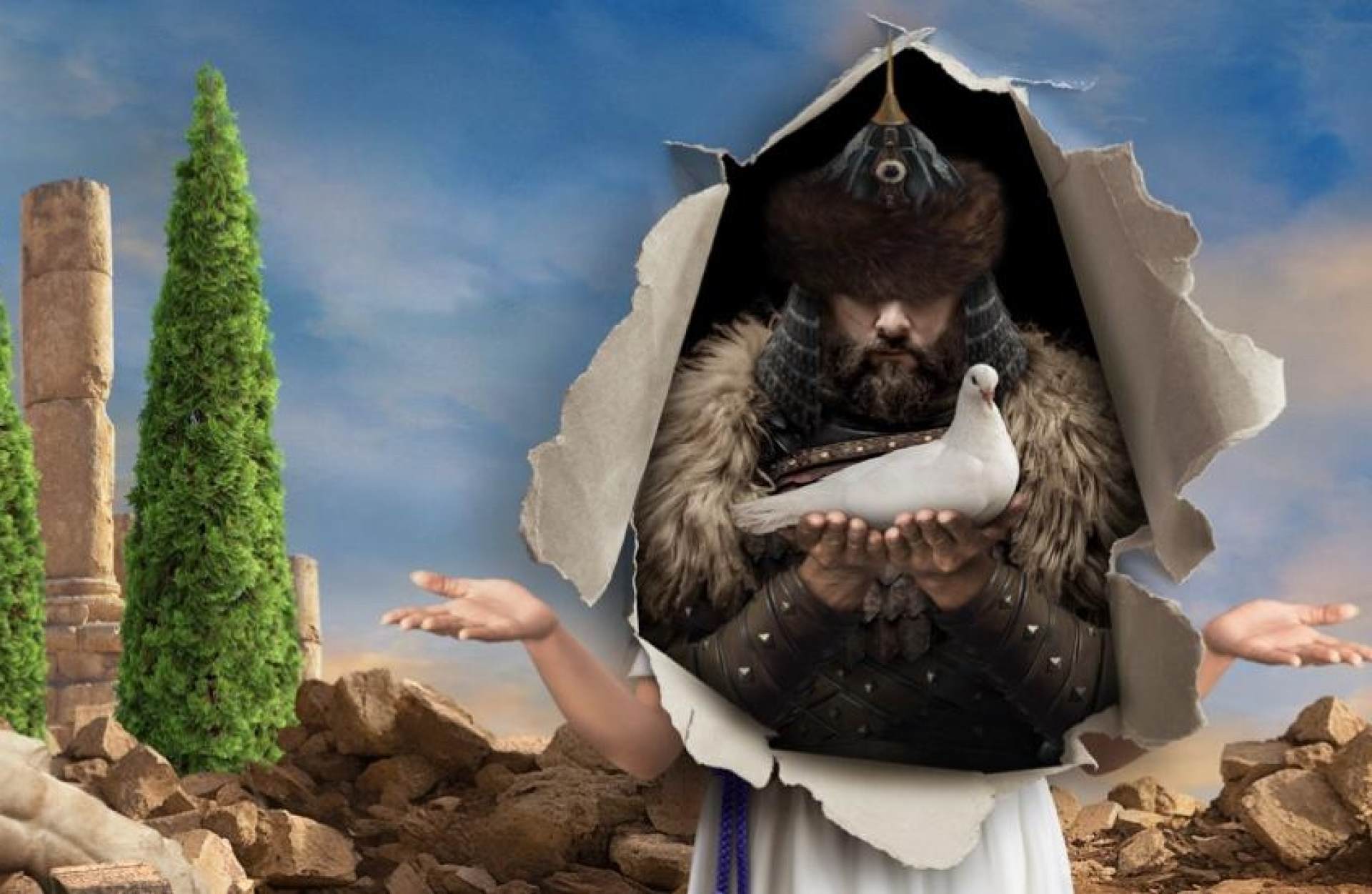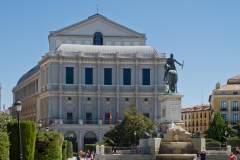Attila
Mo | Tu | We | Th | Fr | Sa | Su |
Verdi's Romantic work will come to life under the expert baton of maestro Nicola Luisotti. A libretto featuring power struggles, forbidden loves, ambition and patriotism performed by top artists such as Sondra Radvanovsky, Michael Fabiano and In Sung Sim.
Dramma lirico in a prologue and three acts
Music by Giuseppe Verdi (1813-1901)
Libretto by Temistocle Solera, based on the play Attila, König der Hunnen, by Zacharias Werner
Premiered at the Teatro La Fenice, Venice, on 17 March 1846.
Premiered at the Teatro Real on 15 November 1854
Concert version
Synopsis
Time: Mid-5th century (it was in 452 that the historical Attila destroyed the city of Aquileia)
Place: Aquileia, the Adriatic lagoons, and near Rome
Prologue
Scene 1: The ruined city of Aquileia
Attila and his victorious horde have destroyed the city of Aquileia (Urli, rapine / "Shouts, pillage"). They are surprised to see a group of women spared as prisoners of war (Di vergini straniere / "Ah, what is this group"). Their leader, Odabella, asks why the Huns' women remain at home (Allor che i forti corrono / "While your warriors rush to their swords like lions"). Attila, impressed by her courage, offers a boon and she asks for her sword, with which she intends to avenge the death of her father at Attila's own hand (Da te questo or m'è concesso / "O sublime, divine justice by thee is this now granted"). After she leaves, the Roman envoy Ezio asks for an audience and proposes a division of the empire (Avrai tu l'universo, Resti l'Italia a me / "You may have the universe, but let Italy remain mine"). Attila disdainfully calls him a traitor to his country.
Scene 2: A swamp, the future site of Venice
A boat bearing Foresto and other survivors arrives. He thinks of the captive Odabella (Ella in poter del barbaro / "She is in the barbarian's power!") but then rouses himself and the others to begin building a new city (Cara patria già madre e reina / "Dear homeland, at once mother and queen of powerful, generous sons").
Act 1
Scene 1: Some weeks later. A wood near Attila's camp, near Rome
Odabella laments her late father and (believing him to be dead) also her lover Foresto (Oh! Nel fuggente nuvolo / "O father, is your image not imprinted on the fleeting clouds?..."). When he appears, she is put on the defensive, denying any infidelity and reminding him of the biblical Judith. The couple is reunited: Oh, t'inebria nell'amplesso / "O vast joy without measure".
Scene 2: Attila's tent
Attila awakes and tells Uldino of a dream in which an old man stopped him at the gates of Rome and warned him to turn back (Mentre gonfiarsi l'anima parea / "As my soul seemed to swell"). In the daylight, his courage returns and he orders a march (Oltre a quel limite, t'attendo, o spettro / "Beyond that boundary I await you, O ghost!"). However, when a procession of maidens clad in white approaches, singing the Veni Creator Spiritus prayer (Vieni. Le menti visita / "Come, visit our minds"), he recognizes the Roman bishop Leo as the old man of his dream and collapses in terror.
Act 2
Scene 1: Ezio's camp
Ezio has been recalled after a peace has been concluded. He contrasts Rome's past glory with the current child emperor Valentine (Dagl'immortali vertici / "From the splendid immortal peaks of former glory"). Recognizing the incognito Foresto among the bearers of an invitation to a banquet with Attila, he agrees to join forces with him (È gettata la mia sorte, son pronto ad ogni guerra / "My lot is cast, I am prepared for any warfare" ).
Scene 2: Attila's banquet
Foresto's plot to have Uldino poison Attila is foiled by Odabella, jealous of her own revenge. A grateful (and unsuspecting) Attila declares she shall be his wife, and places the unmasked Foresto in her custody.
Act 3
The forest
Uldino informs Foresto about the plans for the wedding of Odabella and Attila; Foresto laments Odabella's apparent betrayal (Che non avrebbe il misero / "What would that wretched man not have offered for Odabella"). Ezio arrives with a plan to ambush the Huns; when Odabella comes Foresto accuses her of treachery, but she pleads for his trust (Te sol quest'anima / "Foresto, my soul belongs to you"). Attila finds the three together and realizes he has been betrayed. As Roman soldiers approach, Odabella stabs him with the sword he had given her. The three conspirators cry that the people have been avenged.
Program and cast
Artistic team
Musical conductor: Nicola Luisotti
Chorus master: José Luis Basso
Cast
Attila: Christian Van Horn
Ezio: Artur Rucinski
Odabella: Sondra Radvanovsky
Foresto: Michael Fabiano
Uldino: Moisés Marín
Leone: In Sung Sim
Chorus and Orchestra of the Teatro Real
Teatro Real
The Teatro Real is Spain's leading opera house. It is considered to be the top institution in the country in the music and performing arts field.
The Teatro Real Foundation is chaired by the King and Queen of Spain. It relies on two public administrations that took part in its creation: the Ministry of Education, Culture and Sports, and the Comunidad de Madrid (Regional Government of Madrid). The Foundation is governed by a Board of 31 trustees. The Board of Trustees elects the President of Board and the Executive Commission as proposed by the Ministry of Education, Culture and Sport. The Foundation is a public entity and there is an important role played by civil society in its governance and sponsorship.
The objective of the Teatro Real is to create a venue for the most talented singers, conductors ands stage directors from around the world. Its artistic mission is expressed in programming which seeks excellence by combining classical and contemporary lyrical repertory to appeal to audiences of all ages and interests. Introducing young people and children to opera is of particular concern. All this, along with the Principal Chorus and Orchestra of the Teatro Real, the most up to date technological expertise and the large number of in house productions on stages around the world has firmly positioned the Teatro Real in Spain and abroad.

 EN
EN DE
DE IT
IT FR
FR ES
ES RU
RU JP
JP RO
RO
 Seating plan
Seating plan 